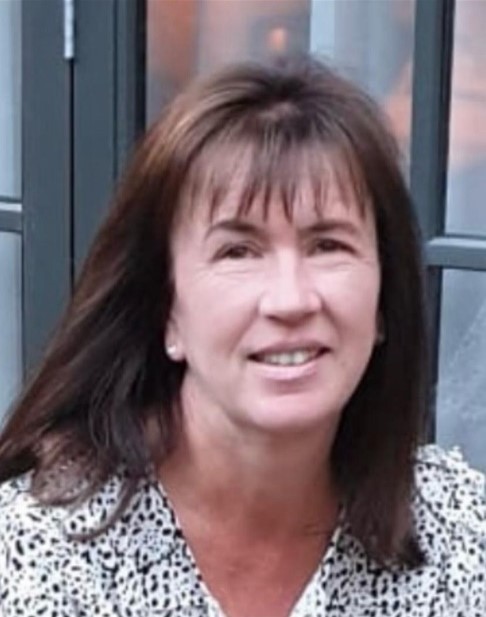Donor conception: “be wholly honest with your donor-conceived children”
In this blog, Sarah, shares her story of having 2 children through donation, how she told them they were donor conceived and accessing support.
Can you tell us a bit about your experience of using donation to have your children?
After many years of fertility treatment, which included two ectopic pregnancies and miscarriages, my ex-husband and I were incredibly fortunate to have two children via donor embryo treatment. Thomas in 1991 and Isabel in 1997. There is no genetic connection between any of us, but this has never made us feel any less connected as a family. Thomas was conceived via egg and sperm donation and Isabel was donated by a couple after their own successful treatment. Thomas is unable to apply for any information about his donors as he was conceived before August 1991 but Isabel applied for non-identifying information when she was 17.
What was your reaction when Isabel said she wanted to contact Marie, and then later wanted to visit her in person?
Isabel and Tom have always known they were donated embryos and I’ve always encouraged and supported them to discover as much as they could about their donors. Our honest and open relationship made the discovery of Marie a very positive experience for us all. I was apprehensive for Isabel as she embarked on this journey, however, as we were going through this process as a family, I felt confident that we could support Isabel through any scenario that developed as a consequence of attempting to contact her donors.
You and Isabel’s brother Tom accompanied her on the trip. How was this for you?
We would never have gone to Norway without Tom, this was our journey as a family. It’s almost impossible to describe my emotions as Isabel walked towards Marie for their first meeting. I had dreamt of this possibility for 25 years never knowing if it could happen. It felt like I was closing the circle, and all the missing bits of Isabel were there for her to discover. The whole experience was life affirming and confirmed that my honesty with Tom and Isabel had played an important part in the success of their reunion.
I was amazed to witness the similarities in how Marie and Isabel laughed. I was bearing witness to the fact that we are not born as a blank page. I felt as though I knew Marie - nature vs nurture in action! There was so much warmth from Marie to us all and our little family had just grown a lot bigger.
Isabel talks about how supportive of her you’ve been in her decision to contact her egg donor and genetic siblings. Do you have tips for other parents on how to support their donor-conceived children if they are thinking of accessing information about the identity of their donor, or making contact?
This is difficult to answer, as our relationship has never been complicated by late disclosure of her conception status. The only advice I can give is to be wholly honest with your donor-conceived children from their earliest awareness and trust the process. Love and honesty always. If your child has discovered they are donor-conceived later in life, they will need your support more than ever. Find a good counsellor with experience in matters around donor conception to help you support your child and be prepared for the emotions that your child will be experiencing.
You are also a BICA registered counsellor. Can you give any advice to donor-conceived people, donors, or parents of donor-conceived people about how to go about accessing counselling?
It is hugely important to seek out the support of a BICA (British Infertility Counselling Association) counsellor who has had specialised training in the unique challenges that donor conception involves. Implications counselling is so important to ensure that all prospective parents have a space to explore their thoughts and feelings around their treatment and to have a clear understanding of how important it is that a donor-conceived child is raised knowing the circumstances of their conception. When considering making contact with a donor the support of an experienced counsellor to guide you through the process as an intermediary can be so important at such an emotionally challenging time.
You were always open with Isabel and her brother Tom about them being donor-conceived and discussed it with them from a young age. Did that make it easier for you to have conversations when your children decided to look into finding out more about their donors?
I feel that being open with Thomas and Isabel from the very beginning was critical to their positive attitudes towards searching for, and finding, their donors. When Thomas and Isabel were born the advice from fertility clinics was there was no need to ever tell my children they were donor conceived. That didn’t sit well with me. At the time, it was impossible to imagine that direct-to-consumer DNA testing would ever exist. So why was I so sure that openness was vital? Regardless of the circumstances of their conception, our children do not belong to us. They are ours to have the privilege to raise and love and that includes absolute openness about their conception status.

About Sarah
Sarah had fertility treatment in the eighties and nineties, which included having treatment with donor embryos which led to the births of her children, Thomas and Isabel. Recently, Sarah was featured on the ITV documentary series “Born From The Same Stranger”, where Isabel and Thomas explored their genetic heritage. Sarah is also a registered fertility counsellor, with the British Infertility Counselling Association.
Review date: 15 April 2027

